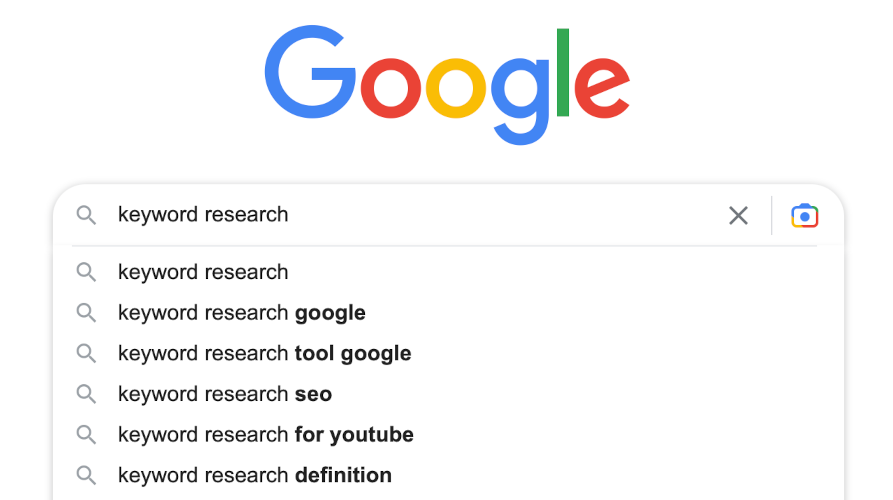Search Engine Optimization (SEO) is the process of optimizing a website or online content to increase its visibility and ranking on search engines like Google®, Bing®, or Yahoo®. SEO is important because it helps people find your website when they search for keywords related to your business or the products and services you offer.
Benefits Of SEO: Increased Traffic, Improved User Experience, And Increased Brand Authority
One of the main benefits of SEO is increased traffic to your website. When your website is optimized for search engines, it is more likely to appear at the top of search engine results pages (SERPs) for relevant keywords. This increases the chances that people will click on your website and visit it, which can lead to more leads, sales, and conversions.
Another benefit of SEO is that it can improve the user experience of your website. When your website is optimized for search engines, it is also optimized for users. This means that it is easy to navigate, fast to load, and mobile-friendly. Additionally, SEO can help to establish your brand as an authority in your industry. When your website consistently appears at the top of SERPs, it can establish your brand as a leader in your industry, which can increase trust and credibility with potential customers.
SEO is also a cost-effective way to increase your online presence. Unlike paid advertising, SEO does not require ongoing payments. Once your website is optimized for search engines, it can continue to rank well and generate traffic for months or even years to come. This makes SEO a great long-term investment for any business that wants to increase its online visibility and reach more potential customers.
It’s important to understand that SEO is not a one-time process; it’s a continuous effort to optimize your website and stay up-to-date with the latest search engine algorithms. There are several on-page and off-page SEO techniques that can be used to optimize your website and improve its visibility on search engines.
On-Page SEO Techniques: Optimizing Content And Structure For Search Engines
On-page SEO techniques involve optimizing the content and structure of your website to make it more search engine friendly. This includes optimizing your page titles, meta descriptions, headings, and images. It’s also important to ensure that your website has a good internal linking structure.
A good internal linking structure is important for a website for a number of reasons:
Navigation
A good internal linking structure makes it easy for users to navigate through a website and find the information they need. By using clear and meaningful link text, users can easily understand where the link will take them and whether it is relevant to their needs.
Search Engine Optimization (SEO)
A good internal linking structure helps search engines understand the structure and hierarchy of a website, which can affect how it is indexed and ranked in search engine results pages. By including internal links, search engines can easily crawl through a website and understand the relationship between different pages, which can help to improve its visibility on search engines.
Content Discovery
A good internal linking structure can help to promote the discovery of new and related content. By including internal links within the content, visitors can easily find other relevant and valuable pages on the website. It also aids in keeping visitors engaged, more chances of them to explore and stay on website longer.
Spread Link Equity
Internal links can spread link equity or link juice. Link equity is the value passed through links. By internally linking to important pages on your website, you can pass more value or equity to those pages, which can help to improve their visibility on search engines.
Improve Engagement
With the help of internal linking, users can find other relevant and valuable pages within the website, making their journey more enjoyable and engaging. Therefore, internal linking is not just important for SEO, but also for user engagement and overall user experience.
By creating a logical and organized internal linking structure, you can help visitors and search engines easily discover and understand the content on your website, which can lead to more traffic and higher search engine rankings.
Now, it’s also important to make sure your website is mobile-friendly because of:
User Experience
A mobile-friendly website is designed to provide a good user experience on small screens and touch-based inputs. This makes it easier for users to navigate, read, and interact with the website, even on the go.
SEO
Google® and other search engines now use mobile-first indexing. This means that they index and rank a website based on its mobile version, even if it’s accessed on a desktop. Therefore, if your website is not mobile-friendly, it may not be well-ranked in search engine results pages, which can affect its visibility to potential visitors.
Increased Mobile Traffic
More and more people are accessing the internet on their mobile devices, and this trend is only going to continue. Therefore, having a mobile-friendly website ensures that you are providing a positive experience for a large portion of your visitors.
Better Conversions
A mobile-friendly website is more likely to convert visitors into customers than a website that is difficult to navigate on a small screen. Mobile-friendly websites are optimized for smaller screens and touch-based inputs, which makes it easier for users to complete forms, click on links, and make purchases.
Brand Reputation
A website that is not mobile-friendly can give a poor first impression to visitors and make them feel like your brand is outdated or not credible. A mobile-friendly website, on the other hand, can give a professional and modern impression to visitors and help to establish your brand’s reputation.
With the increasing use of mobile devices to access the internet, it is essential for businesses to make sure their website is optimized for mobile users in order to stay competitive and reach their target audience effectively.
Off-Page SEO Techniques: Building Quality Links From Other Websites
Off-page SEO techniques involve building links from other websites to your website. Search engines consider links from other websites to be an indicator of the authority and credibility of your website. Therefore, the more links you have pointing to your website, the more likely it is to rank well on search engines.
Building links is an essential aspect of off-page SEO and can be done through a variety of methods such as:
Guest Blogging
Writing and publishing articles on other websites or blogs in your industry can help to establish your brand as an authority and build links back to your website. This method can help to increase your website’s visibility, reach a new audience, and earn quality backlinks.
Directories Submission
Submitting your website to online directories can help to increase its visibility and earn backlinks. There are many industry-specific and general directories that you can submit your website to, such as Yellow Pages and Yelp.
Social Media
Building a presence on social media can help to increase your website’s visibility and earn backlinks. By sharing your content and engaging with other users, you can increase the chances of your content being shared, which can earn you backlinks.
Broken Link Building
Finding broken links on other websites within your industry and then reaching out to the webmaster to inform them, and offer a relevant link to your site as a replacement. This can help you to earn backlinks from relevant and high-quality websites.
Infographics And Interactive Contents
Creating compelling and informative infographics and interactive contents can attract backlinks from other websites who find your content interesting and want to link to it.
Link Reclamation
Identifying and recovering links to your website that have been lost, such as due to a redesign or migration can also help in link building.
Outreach And Partnership
Building partnerships and relationships with other websites and influencers within your industry can help you to earn backlinks through collaborations and mutually-beneficial content promotions.
In summary, link building is a comprehensive effort that can be achieved through different methods. It is important to diversify your link building strategy and use a combination of different methods to achieve the best results. But always keep in mind that the most important aspect is to provide valuable, informative, and high-quality content, which attracts natural backlinks from other websites.
Keyword Research: Identifying And Using Relevant Keywords
Another important aspect of SEO is keyword research. Keyword research involves identifying the keywords and phrases that people are searching for and using them in your website content and meta tags. This can help to ensure that your website appears in search engine results when people search for those keywords.
Staying Up-To-Date With The Latest SEO Trends And Best Practices
As we mention above, it’s important to stay up-to-date with the latest search engine algorithms to ensure that your website continues to rank well on search engines. Search engines are constantly updating their algorithms, and new trends and best practices are emerging all the time. Therefore, it’s important to be proactive in staying informed about the latest SEO trends and best practices.
Additional SEO Tools And Resources
In addition to these techniques, there are many other SEO tools and resources available to help you optimize your website and improve its visibility on search engines. These include tools for keyword research, analytics, and link building, as well as SEO-friendly website builders, plugins, and more.
However, it’s important to keep in mind that SEO is not a magic bullet. While it can significantly increase your online visibility and reach more potential customers, it’s not the only factor in determining the success of your online business. Quality content, good design, and a user-friendly website all play a role in attracting and retaining customers. Therefore, it’s essential to use SEO in conjunction with other digital marketing strategies to get the best results.
Conclusion: How SEO Can Take Your Business To New Heights Of Online Visibility And Success
SEO is a critical aspect of any digital marketing strategy. It can help to increase your website’s visibility on search engines, reach more potential customers, and establish your brand as an authority in your industry. However, it’s important to keep in mind that SEO is not a one-time process, but a continuous effort to optimize your website and stay up-to-date with the latest search engine algorithms. With the right SEO strategy in place, you can take your business to new heights of online visibility and success.







No comment